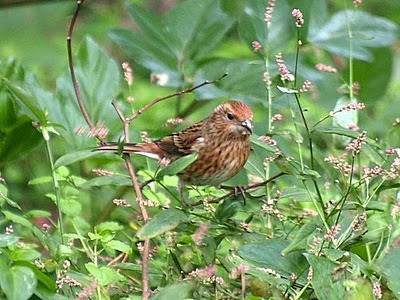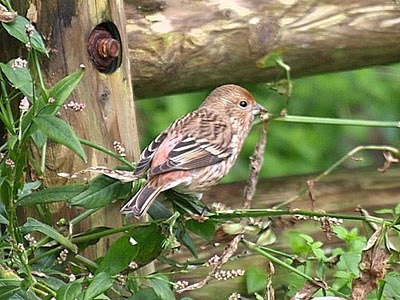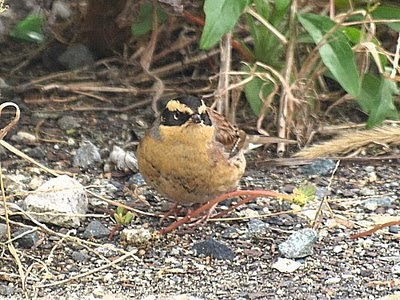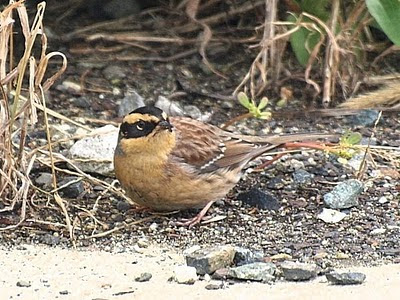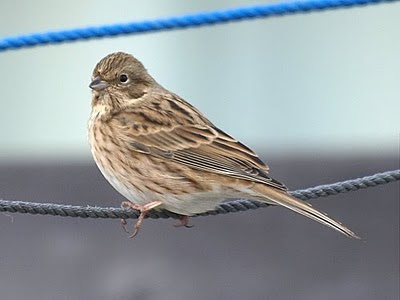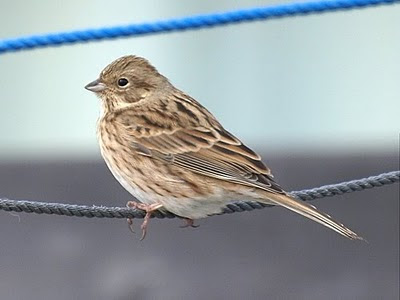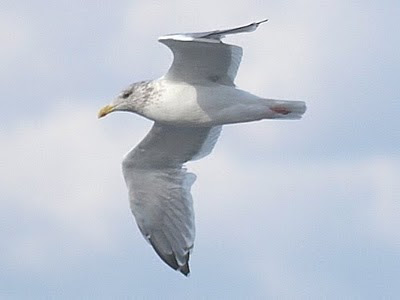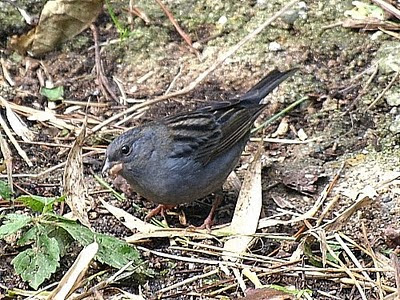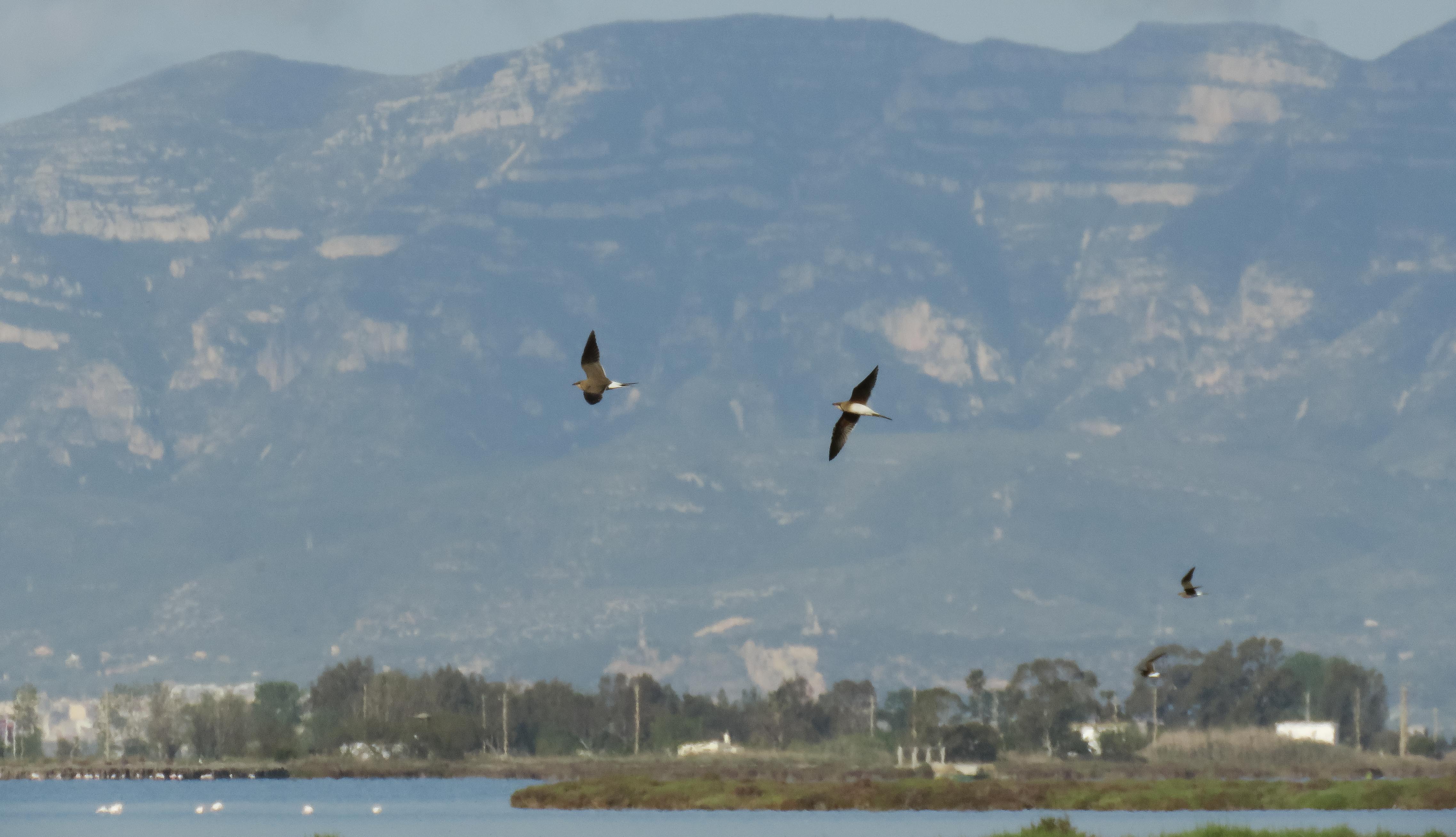3/11/10: W5 with sunshine and showers proving cold at times. A Lapwing was virtually the first species seen signalling another cold weather movement. Most of the usual species were seen with our persistence rewarded by finding a Pallas’s Leaf Warbler whilst watching the Red-breasted Flycatcher along the Central Track, a Yellow-browed Warbler nearby, and a female Siberian Rubythroat that lingered in the Tsukasa Fields until our last day on the 7th.










Pallas's Rosefinches at the Drinking Pool
Rustic Bunting along the Central Track
This is the same form that occurs in the UK
This tiny-sized Reed Bunting sp. was suffering from an unsightly growth/infection cloaking its upper mandible (and therefore shape). In the field due to its size, pale lower mandible, virtually unstreaked underparts and triangular-shaped malar stripes we considered it most-likely a female Pallas’s Reed Bunting E. pallasi but due to its heavily streaked mantle we often harboured doubts as to whether it was in fact a Japanese Reed Bunting E. yessoensis although it lacked the anticipated warm rufous-brown lower back, rump and uppertail-coverts of that species. However, photographs reveal that perhaps we were looking ‘the wrong way’ as can Common Reed Bunting be safely eliminated? It was silent. Despite frequently trying, we constantly failed to establish whether its lesser coverts were grey – there was never a hint of such albeit the wispy overlaying buffy upper flank feathers did not help. Of greater concern is the visible paler brown crown-centre clearly contrasting with the darker lateral crown-stripes that would seem entirely consistent with Common Reed Bunting E. schoeniclus but definitely at odds with a safe identification as the supposedly uniformly-crowned Pallas’s Reed Bunting E. pallasi. A very difficult individual to identify with any confidence!


Brambling at the south west shore
Species noted:
Streaked Shearwater 100
Cormorant 20
Eastern Reef Egret 2
Great Egret 7
Grey Heron 3
Goosander 1
Teal 1
Black-eared Kite 2
Sparrowhawk 2
Peregrine 1
Lapwing 4
Black-headed Gull 2
Black-tailed Gull 200
Vega Gull 10
Slaty-backed Gull 15
Rufous Turtle Dove 5
Skylark 12
Olive-backed Pipit 2
Red-throated Pipit 1
Siberian Buff-bellied Pipit 10
Black-backed Wagtail 5
Brown-eared Bulbul 2
Siberian Accentor 4
Siberian Rubythroat 1 female
Red-flanked Bluetail 1
Daurian Redstart 15
Blue Rock Thrush 6
Pale Thrush 3
Eye-browed Thrush 1
Dusky Thrush 30
Naumann's Thrush 1
Japanese Bush Warbler 5
Arctic Warbler 2
Pallas's Leaf Warbler 1
Yellow-browed Warbler 1
Goldcrest 20
Wren 1
Grey-streaked Flycatcher 1
Red-breasted Flycatcher 1
Japanese White-eye 15
Eastern Rook 2
Large-billed Crow 4
White-cheeked Starling 10
Brambling 50
Oriental Greenfinch 6
Siskin 100
Mealy Redpoll 25
Pallas's Rosefinch 3
Long-tailed Rosefinch 1
Japanese Grosbeak 1
Hawfinch 30
Grey Bunting 8
Black-faced Bunting 15
Pine Bunting 1
Meadow Bunting 1
Chestnut-eared Bunting 2
Elegant Bunting 35
Rustic Bunting 35
Pallas's Reed Bunting 1





